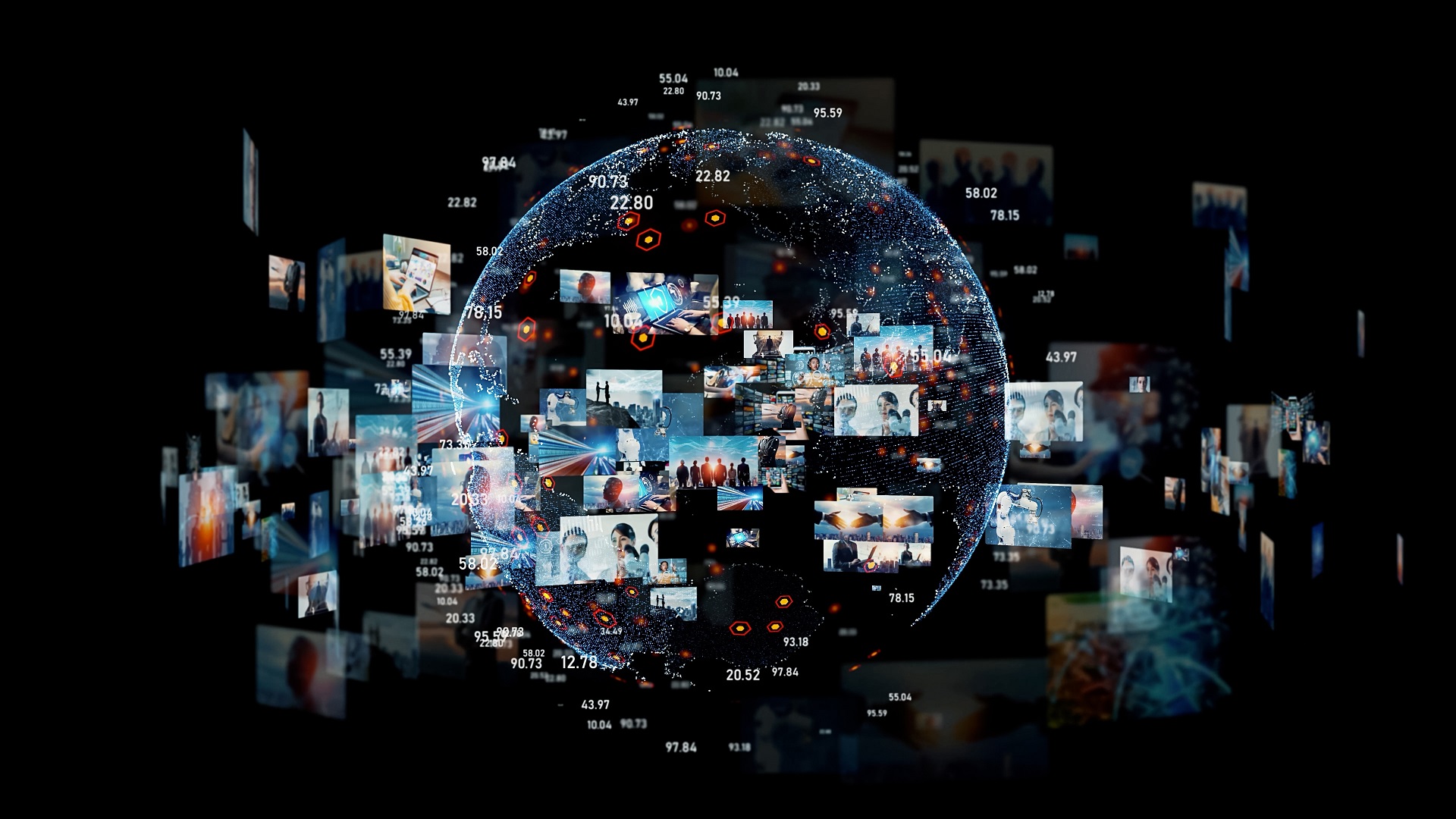على الرغم من أن الصحافة الرقمية قطعت أشواطاً كبيرة في التطور والتأقلم مع الظروف المتغيرة للفضاء الرقمي، إلا أن الكثير من المفاهيم المتعلقة بها لاتزال قيد التوقعات والاعتقادات التي لم تخضع للتجريب أو القياس العلمي لإثباتها أو نفيها. نناقش في هذا المقال بعض المفاهيم والفرضيات التي يتم تناقلها على أساس أنها حقائق رغم أنها لا تعدو أن تكون فرضيات مغلوطة تنهار عندما تتعرض للقليل من التفكيك.
غرف الصدى وفقاعات الترشيح
تطرح فرضية غرف الصدى فكرة أن الأشخاص على مواقع التواصل الاجتماعي قد يصبحون محصورين في دوائر اجتماعية أو فكرية محددة مطابقة لوجهات نظرهم في المعتقدات والانتماءات الأيديولوجية، ويجري تضخيمها وتعزيزها داخل هذه الدوائر، وتحجب عنهم الآراء المخالفة لوجهات نظرهم مما يجعلهم أكثر استقطاباً لأفكارهم وتشدداً لها.
أما فرضية فقاعات الترشيح فتفترض أن الخوارزميات على المواقع الإلكترونية ومنصات التواصل الاجتماعي تقوم باختيار المعلومات التي تقدّمها للمستخدم بشكل انتقائي بناءً على عمليات البحث والتفاعل السابقة التي قام بها المستخدم، مما يُنتج حالة من العزلة المعلوماتية للمستخدم الذي يتعرّض للمعلومات التي تتفق فقط مع وجهات نظره بما يتفق مع توجهاته الثقافية أو الفكرية، بحيث يصبح وكأنه يعيش داخل فقاعة.
يتم استخدام هاتين الفرضيتين في الكثير من النقاشات الصحفية، أحياناً لإثبات أثر الخوارزميات على انحياز الصحفيين باعتبار أنهم تعرّضوا للكثير من المعلومات من طرف واحد ولم يسمعوا رأي الطرف الآخر أو وجهة نظره على مواقع التواصل الاجتماعي، وأحيانا أخرى لإثبات أسباب عدم وصول المحتوى الإخباري لفئات معينة من الجمهور باعتباره تعرّض للتصفية؛ كون هذا المحتوى يتعارض مع تفضيلات الخوارزميات لهذا الجمهور.
لا يمكن لأي شخص من الجمهور أن يكون معزولاً عن الأفكار المغايرة لأفكاره بشكل كامل حتى لو حاول ذلك بإرادته.
لكن الحقيقة أن كلتا الفرضيتين يضخم أثرهما بشكل كبير جداً يتعدّى الواقع؛ لأنه لا يمكن لأي شخص من الجمهور أن يكون معزولاً عن الأفكار المغايرة لأفكاره بشكل كامل حتى لو حاول ذلك بإرادته. لنأخذ هنا مثالاً شخصياً، أحاول كثيرا أن أعزل نفسي عن الأخبار الزائفة فلا أتابع الصفحات أو الحسابات التي تنشرها، بل وأقوم بعمل حظر لهذه الصفحات، ولا أزور إلا المنصات الإخبارية الموثوقة، لكن على الرغم من ذلك، ها هي تصلني الأخبار الزائفة عبر مجموعات مختلفة على تطبيق واتس اب، وعبر تفاعل أشخاص قريبين من أشخاص ضمن دائرة معارفي مع هذه الأخبار، كما تصلني من خلال حسابات ومنصات التحقق من المعلومات بعد تفنيدها، فأصبحت أعلم بوجود هذه المعلومات رغم جميع محاولاتي لعزل نفسي عنها، وحتى على أرض الواقع يتناقلها أشخاص من حولي سواء في العمل أو على طاولة الغداء، وهو ما يشير إلى أنني لستُ معزولاً رغم السعي الحثيث لأكون كذلك فعلا.
أما بالنسبة لأثر هذه الفرضيات على الصحفيين، فإنه محدود أكثر منه في حالة الجمهور، كما أن استعمالهما أخطر هنا، فهما ذريعة تُقدّم بالمجّان للصحفيين لتسويغ انحيازهم وتصرفاتهم غير المهنية، لكن ألف باء الصحافة والمعايير الأساسية للمهنة تفرض على الصحفيين كسر أي عزلة معلوماتية مفروضة عليهم، سواء من خلال السعي إلى الحقيقة الذي يُحتّم عليهم النظر في مجمل وجهات النظر في القضايا التي يعملون عليها، والتمسك بالنزاهة والشفافية في منهجية البحث عن المعلومات وطرق التعامل معها، إلى جانب متطلبات العمل الصحفي التي تفرض على الصحفي أن يكون مطّلعاً بشكل دائم، وهذا الاطّلاع يتطلب أن يقرأ التقارير الإخبارية من مختلف التيارات.
إذا ما أخذنا بعين الحسبان عدد التحقيقات الاستقصائية العابرة للحدود، والتي ما كانت لترى النور لولا رقمنة الصحافة والمعلومات، فإن الادّعاء بأن الصحافة باتت تحتضر بسبب التطور الرقمي يبدو غير دقيق.
"الصحافة تحتضر"
يدور في أحاديث الصحفيين وتعبيرهم عن تطورات المهنة في العصر الرقمي أن الصحافة الجادّة والمهنية باتت تحتضر وأنها أقل انتشاراً، وأن المستقبل قاتم في ظل عدم اهتمام الجمهور بالمحتوى الإخباري. وهذا الادّعاء يتم التدليل عليه حين يقارن انتشار المحتوى الصحفي مع بقية أنواع المحتوى على مواقع التواصل الاجتماعي.
المقارنة بحد ذاتها مجحفة، فمن حيث النوع لا يمكن مقارنة المحتوى الإخباري الذي يحمل طابعا معلوماتيا توعويا وتثقيفيا ومعرفيا بالمحتوى الترفيهي الذي يتابع بهدف الهروب من الواقع، كما أن دور الصحافة في المجتمع مختلف تماماً عن دور بقية أنواع المحتوى، لكن الصحافة قبلت بشروط وسائل التواصل الاجتماعي حين اعتمدت عليها كمصدر رئيسي للعثور على الجمهور؛ لذلك فإن المحتوى الإخباري تأثّر من ناحية الشكل وطرق العرض بناءً على بنية منصات التواصل الاجتماعي بدلاً من الحفاظ على الشكل الصحفي المناسب للقصة الإخبارية أو المحتوى، كما أن هدف منصات التواصل الاجتماعي هو جذب انتباه المستخدم أطول فترة ممكنة من خلال المحتوى، فلا يعنيها أن يتثقّف أو أن يعرف المستخدم أكثر عن قضية معينة.
للتفسير أكثر، فإن التقرير الإخباري الذي يتم عرضه في نشرة الأخبار تبلغ مدّته دقيقتان، يتم فيها إجمال الكثير من المعلومات المربوطة بالمحتوى البصري، يعلم متابعه على نشرة الأخبار ما الذي ينتظره حين يعرض، في حين أن إعادة استخدام هذا القالب كما هو لمنصات التواصل الاجتماعي لن يكون فعّالاً، لأن المستخدمين مدرّبين على متابعة المحتوى الذي يجذب الانتباه أكثر.
انعكس تأثير بنية منصات التواصل على مجمل المحتوى الصحفي، فمنصة تويتر أدخلت مبدأ الاختزال الشديد على المحتوى، وحتى بوجود حلول تقنية مثل الثريد إلا أن المستخدم مهيأ مسبقاً للمحتوى المكتوب القصير جداً، فلا مكان للقراءات الطويلة على تويتر، أما فيسبوك فدعم الفيديوهات القصيرة التي يمكن مشاهدة العشرات منها خلال ساعة واحدة. لذلك فإن التقارير الإخبارية كان يتوجب عليها أن تكون بوتيرة أسرع وبطابع ترفيهي.
إذا ما أخذنا بعين الحسبان عدد التحقيقات الاستقصائية العابرة للحدود، والتي ما كانت لترى النور لولا رقمنة الصحافة والمعلومات، فإن الادّعاء بأن الصحافة باتت تحتضر بسبب التطور الرقمي يبدو غير دقيق، لكن ربّما بات على الصحافة أن تتحرر من قيود بُنى منصات التواصل الاجتماعي كي تعود للازدهار.
فرضيات غرف الصدى وفقاعات الترشيح يضخم أثرهما بشكل كبير جداً يتعدّى الواقع؛ لأنه لا يمكن لأي شخص من الجمهور أن يكون معزولاً عن الأفكار المغايرة لأفكاره بشكل كامل حتى لو حاول ذلك بإرادته.

















![Palestinian journalists attempt to connect to the internet using their phones in Rafah on the southern Gaza Strip. [Said Khatib/AFP]](/sites/default/files/ajr/2025/34962UB-highres-1705225575%20Large.jpeg)





















